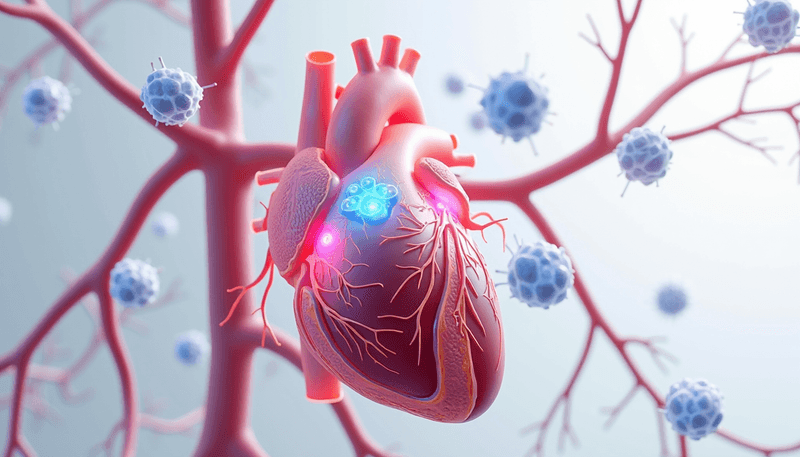Hidden Heart Risks During Menopause Transition

Your heart doesn't know you're approaching menopause - but your hormones certainly do. Recent research reveals that cardiovascular risks increase significantly during the menopause transition, affecting women in ways many of us never expected. As a woman who might spend nearly one-third of your life after menopause, understanding these changes isn't just interesting - it's essential for your long-term health.
The Estrogen Shield: Understanding Your Changing Heart Protection
Think of estrogen as your body's natural heart-protective armor. Before menopause, this hormone works tirelessly to keep your cardiovascular system running smoothly. But as you enter perimenopause, this protection starts to fade. Research shows that women who experience menopause before age 40 face a 33% higher risk of heart failure and a 9% higher risk of atrial fibrillation.
Have you noticed changes in your heart rate or blood pressure since entering perimenopause?
Here's what happens in your body:
- Estrogen helps keep your blood vessels flexible and responsive
- It maintains healthy cholesterol levels
- It prevents excessive fat accumulation around your organs
Practical steps to boost your heart health:
- Schedule regular blood pressure checks starting in perimenopause
- Request comprehensive cholesterol testing annually
- Track your heart rate variability using smartwatch technology
- Consider discussing aspirin therapy with your healthcare provider if you have additional risk factors
The Hidden Connection: Weight Changes and Metabolic Health
Your body's fat distribution changes dramatically during menopause - it's like your internal GPS gets recalibrated. Where fat once settled in your hips and thighs, it now prefers to gather around your midsection. This isn't just about appearance; it's about metabolic health.
Think of your body's metabolism like a thermostat. Before menopause, it's set to a specific temperature (rate). During and after menopause, that setting changes, leading to:
- Decreased muscle mass
- Lower resting metabolic rate
- Increased insulin resistance
- Higher risk of metabolic syndrome
Action steps for metabolic health:
- Focus on building and maintaining muscle mass through resistance training
- Time your meals to align with your natural circadian rhythm
- Include protein with every meal (aim for 25-30g per main meal)
- Monitor your waist circumference - keep it under 35 inches
Vitamin D: The Overlooked Ally in Menopause Health
Consider vitamin D your body's Swiss Army knife - it does far more than just help with bone health. During menopause, adequate vitamin D levels become even more critical for:
- Cardiovascular protection
- Metabolic regulation
- Muscle strength maintenance
- Mood stability
When was the last time you had your vitamin D levels checked?
Simple ways to optimize your vitamin D status:
- Get 15-20 minutes of morning sunlight exposure daily
- Include fatty fish in your diet twice weekly
- Consider supplements after testing your levels
- Pair vitamin D-rich foods with healthy fats for better absorption
The journey through menopause is unique for every woman, but the need to protect our cardiovascular and metabolic health is universal. Start implementing these changes today - begin with just one action step from each section. Your future self will thank you for taking these proactive steps toward better health.
Which of these three areas - heart protection, metabolic health, or vitamin D optimization - will you focus on first?
Let's make this transition an opportunity for positive change. Share your chosen focus area with your healthcare provider and create a personalized plan that works for your lifestyle and health goals.

Amelia Grace Okonkwo
Amelia Grace Okonkwo is a freelance health writer and author with over 15 years of experience in health journalism, specializing in women's health and autoimmune disorders. With a background in biology and a Master’s in Public Health from Johns Hopkins, she combines scientific accuracy with a storytelling approach to make health information accessible and empowering. Amelia is known for her bestselling book, "The Skin We're In," which explores autoimmune disorders and their impact. She is passionate about delivering practical health insights for women, addressing topics from midlife wellness to mental health.






